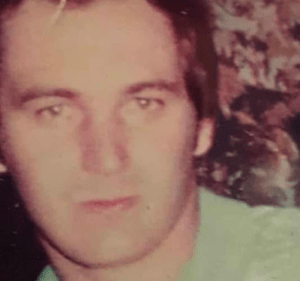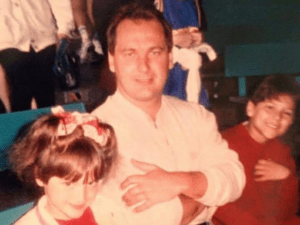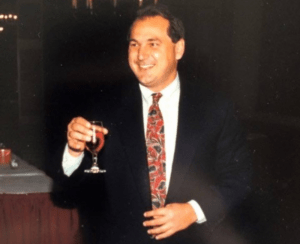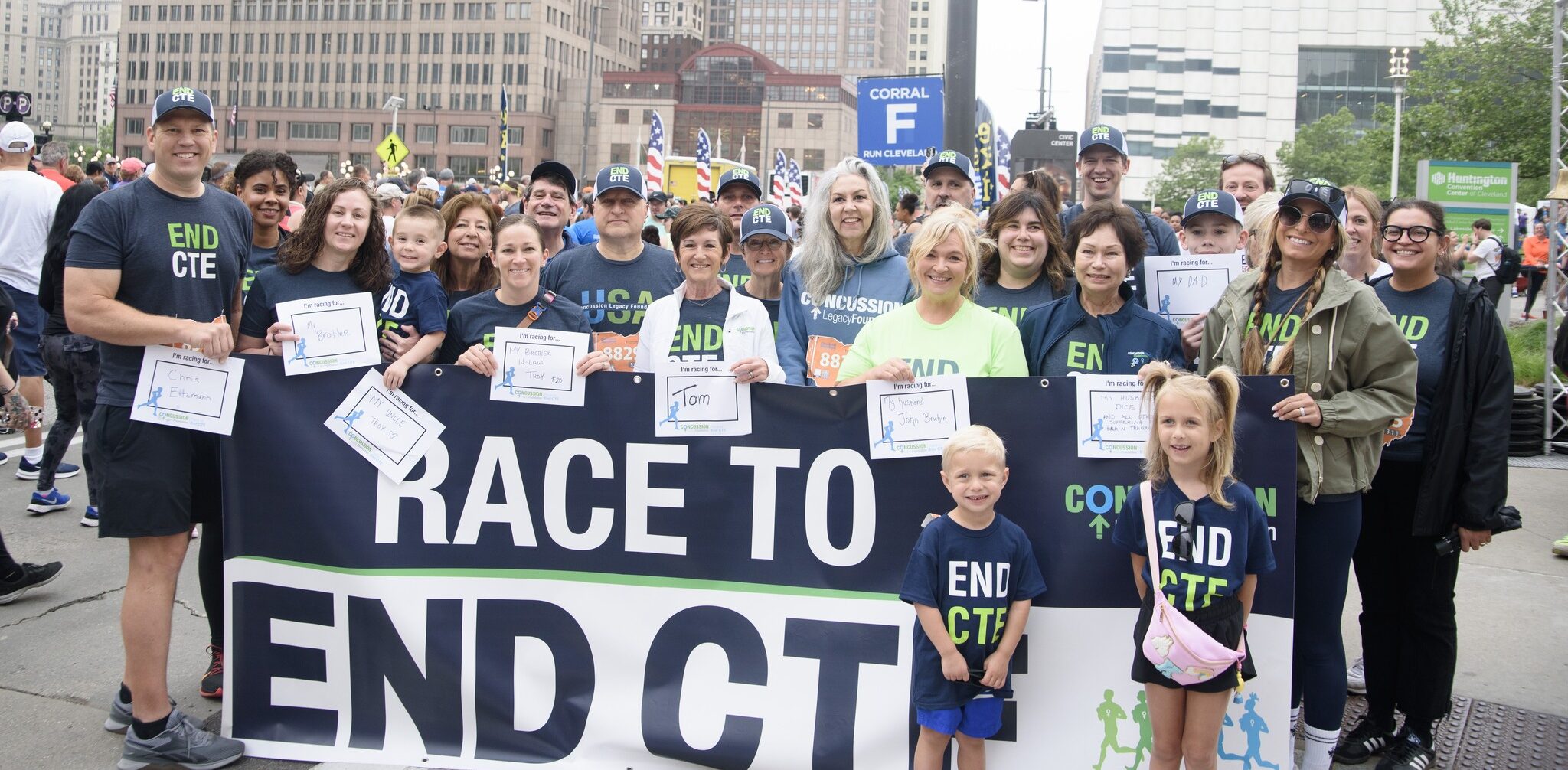Steve Schmitz was a tremendous athlete whose talent in football led to a scholarship at the University of Notre Dame. Though he had an opportunity to compete for an NFL roster spot, Steve decided to forgo pro football to spend time with his family and find a different path in life. During his later years, Steve’s health deteriorated to the point where he could no longer take care of himself. Steve passed away in February 2015 at the age of 59. Below, Steve’s wife Yvette shares his Legacy Story to honor a great man lost too soon.
Beginnings
I first met Steve in 1972, at the age of 17. He participated in many sports, including football, basketball, baseball, and even golf. He didn’t just play; he excelled. His athletic achievements were featured regularly in local newspapers, so much so he couldn’t go out to places as people would recognize him. It felt like a burden to Steve at times, who certainly loved sports but didn’t want that to define who he was.
While sports took up most of Steve’s life, he was able to keep it separate from everything else once off the field. He preferred spending time with his loved ones, including family, friends, and, of course, me. He was sentimental about the world and thought there was more to him than all that media hype.
Still, Steve’s talent in football was apparent. Colleges were lining up to recruit him and get him to commit. I felt like this process made him lose some of his ambitions and other dreams. Steve once told me he’d like to have been a psychologist or therapist of some kind. I always used to say he could psychoanalyze a telephone pole. Nevertheless, Steve ended up choosing the University of Notre Dame.

Before Steve left for school, we became happily engaged and I decided to stay in Cleveland to pursue a few passions of my own. Since I was pretty active myself, I wanted to become a personal trainer or sports therapist to help others. I think I had a good understanding of safety and always cringed when I saw big head hits in football. Even back then, I felt this was so unhealthy, but that’s just how they were taught by coaches. Athletes had no idea what would happen to them in the future. Of course, we are now starting to see the repercussions of all that damage.
After graduating, Steve was invited to training camp with the Cleveland Browns, going there about one month after we got married. For reasons unknown to me, he ended up quitting and returning home. He said he just wanted to move forward with his life. Taking on various jobs at first, it took Steve a while to find his place in the business world, eventually settling into the moving and storage transportation industry. He was a very hard worker but never brought work home with him.
Steve was a wonderful husband and father who prioritized spending time with family. He was patient, compassionate, and always encouraged our children to follow their dreams. Our kids tried various sports with quite a bit of success, while Steve stayed active through local baseball and basketball leagues. It was a busy but fulfilling life.

A Different Steve
As the years went on, Steve started having trouble making decisions and handling our personal finances. He had issues with memory, became confused often, and couldn’t focus. More and more, I had to take over all our family duties.
Steve then had to change jobs several times as he was having difficulties functioning in an office setting. Eventually, he could no longer work. His mind was failing him.
Our kids were now adults and confused by what was happening with their father. I had no answer, as I didn’t understand it, either. The wonderful man I used to know was slowly slipping away. Steve wasn’t the same; he was losing his place, his purpose.
I took Steve to various doctors and neurologists, but even they had no explanation. His health declined to the point where I could no longer leave him alone. I was also working part-time so it was difficult balancing all these responsibilities. Eventually, we lost everything. We used up our savings and retirement accounts to pay for the pile of medical bills and living expenses. Our home and cars went to the banks. We were only able to survive with the help of family, friends, and charities.
But the biggest loss of all was Steve.
My Lost Gladiator
Steve’s spirit was no longer connected to him, and his mind continued to deteriorate. We took many, many trips to different psychiatric centers in the hope any kind of treatment or medication could help Steve. He said he was “afraid of the demons coming after him.”
I had to take preventative measures around the entire house to keep Steve safe from himself and the monsters in his head. He couldn’t tell if something was food or it wasn’t and tried to claw his way into everything. The cupboards, drawers, and closets were locked up. I couldn’t let him out of my sight for a minute. Steve was homebound, a prisoner in his head and in his own home.

In the end, Steve wasn’t going to face these final days without all the love and care we could provide. While I couldn’t connect with him on the outside, I sensed his soul was still in there somewhere. We lost Steve on February 13, 2015, his beautiful spirit going up to heaven.
After his passing, we made the decision to donate Steve’s brain to the UNITE Brain Bank for research. It was undoubtedly the hardest thing I’ve ever done.
I have always felt football is a gladiator sport. Today, I picture Steve in his football uniform standing atop a hill, covered in gladiator armor. From the outside, he seems big, strong, and powerful. But when you look closely, there’s no face – it’s simply blank, like the final years of his life. When he was Steve, he was an angel on earth. Now, he’s an angel in the sky. I always wished I could save him, but God did it first.
It doesn’t get any better than that.

